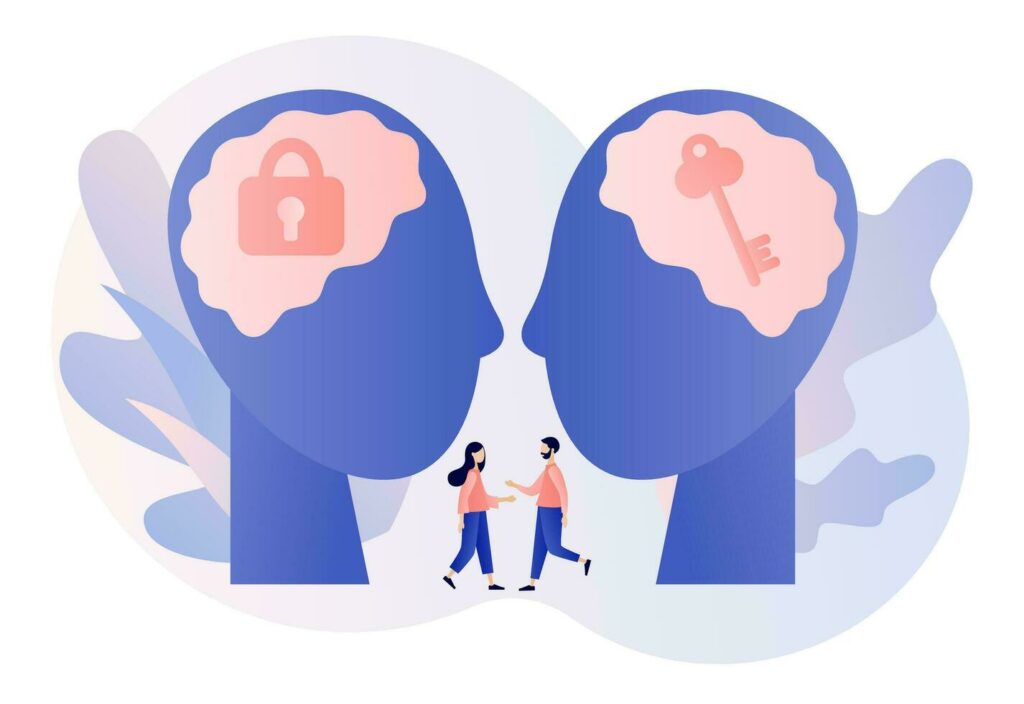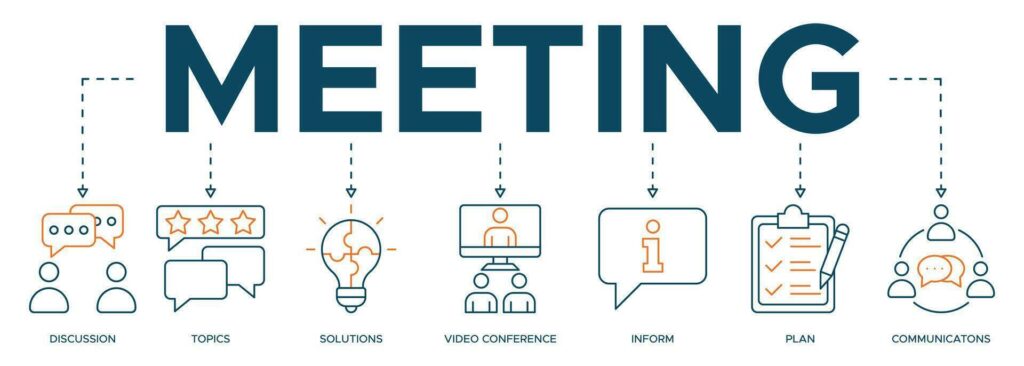Social skills, or interpersonal and soft skills, are important to our daily interactions. Interpersonal skills are how we express ourselves when we communicate with others. An expression or demeanor that is appropriate in one situation may not be the same in another, so being able to express ourselves appropriately is important in personal or professional contexts.
Effective communication helps people share ideas, resolve problems, develop personally and professionally, and maintain healthy and sustainable relationships. Social skills not only help us connect with individuals but can also promote shared success, personal well-being, and quality of life.
Table of Contents
Types of Social Skills
Social skills can take various forms, and the types of interpersonal skills vary widely in our daily lives. The following list describes some key social skills that have a significant impact on our daily lives.
Active Listening
Active listening is listening to someone while focusing exclusively on that person. Active listening is understanding the listening person’s perspective without any distractions and responding to someone in a way that accurately reflects that understanding.
For example, in a workplace, an active listener is a co-worker who is jotting down notes, intermittently nodding their head, occasionally asking questions for clarity, and synthesizing what is said by paraphrasing and confirming understanding of what is heard.
This coworker is also designating the speaker an indication of respect, leading to the development of trust that will lead to camaraderie, making the speaker feel they are heard.
Effective Communication
Strong communication skills include both verbal and nonverbal forms of communication. Verbal communication is any form of spoken or written context that expresses our thoughts and feelings. When communicating verbally, it is important for others to understand your intent. For example, if you want to explain a difficult topic to a colleague, they find it easier to understand and digest when you break it into pieces using examples to support your verbal explanations.
Nonverbal communication enhances verbal communication by conveying emotions, intentions, and reactions. Nonverbal communication includes facial expressions, body language, eye contact, and gestures. For example, when having a conversation with someone and you smile, this often indicates that you are being friendly. If you cross your arms, however, this person may see this as a defensive action. When you have steady eye contact and engagement while verbally communicating with someone, this often indicates honesty and interest; however, when someone finds it uncomfortable to look you in the eye, they may be nervous or dishonest about what they are verbally communicating to you.
When someone in a conversation is nodding their head while you speak, this indicates engagement. If, however, they roll their eyes or keep checking the time, this may show impatience or a lack of interest.
Practicing Empathy
Empathy is the ability to understand two perspectives and value their feelings. For example, if a coworker on your team is dealing with some personal issues, being there for them as a sounding board or providing supportive language will help build stronger relationships and create an atmosphere of compassion. Empathy helps create a culture of trust. When people trust that they will not be judged, they tend to speak the truth.

Conflict Resolution
Conflict resolution is about finding common ground after a disagreement. For example, let’s say you were with your team all day discussing how to take a project in a new direction. You may even have some team members who had differing opinions from you. To demonstrate to the team that you are trying to be objective and hear the opinions of others, you could mediate the conflicting opinions that you are hearing and come to a solution.
Respect
Respect in communication refers to how much you value what others have to say and their opinions. For example, allowing your teammates to talk during brainstorming sessions and listening to their ideas prior to making comments demonstrates respect and inclusion. Respect also refers to being professional in communication, even if you have a different opinion, which keeps relationships healthy and strengthens collaboration and mutual respect.
Cooperation
Cooperation is valuable during situations where you are working toward common goals, such as completing a group assignment or planning an event. For example, dividing a specific task according to members’ strengths and making a plan for talking to each other during the process.
Cooperation builds collective responsibility that fosters teamwork. Working cooperatively creates a shared sense of unity and purpose while allowing a team to trust each other to accomplish more work in the process.
Self-Awareness
Self-awareness is the ability to control the way you feel and understand how that might come through in your behavior. For example, you may feel defensive during feedback. Self-awareness allows you to identify mistakes in your feelings and behaviors, then gives you time to put those feelings aside and respond appropriately. Developing your self-awareness does not only help with interpersonal situations but also personal awareness and growth.
Positive Attitude
Positivity can motivate and inspire others, especially during a time of crisis. For example, directly involving your teammates and encouraging them in working towards solutions rather than focusing on the problems can create a more positive and optimistic environment, even when they are faced with urgent deadlines. Positivity is collaborative and provides a much more manageable sense of challenge, thus raising everyone’s level of morale.
Tips to Follow
Now that we have a good understanding of social skills and their types, it’s time to learn how we can use them to enhance our interactions. Below are some tips that will be helpful.
Be One with Your Audience
It’s crucial to focus on the people you’re talking to. It’s easy to get caught up in your own thoughts or worry about what to say next, but doing so can cause you to miss valuable information. Whether you’re giving a speech or talking to a team, understanding your audience and how they prefer to receive information is essential.
To build open and honest relationships, it’s important to be direct rather than rambling. Being direct doesn’t mean being rude; it simply means being clear and concise. This approach ensures people understand exactly what you’re saying and reduces the chances of misunderstanding.

Active listening is key to effective communication. You must be fully present, ensuring the other person feels heard and understood. Empathy plays a vital role here. You need to try to understand their state of mind, why they’re behaving a certain way, and how your actions might impact them.
Ask open-ended questions that require more than simple “yes” or “no” answers. Follow up with additional questions or ask them to elaborate. This not only encourages deeper conversation and engagement but also shows that you’re genuinely interested in what they have to say.
You can further demonstrate your interest through nonverbal cues like nodding and smiling. Pausing before asking follow-up questions gives them space to elaborate. Using visualization techniques can help you better understand and remember key points.
Self-Understanding and Acceptance
We all have someone we want to be like. While it may not be possible to become like them, we can become more effective speakers and eliminate unnecessary confusion. First, you need to know and accept yourself. Whether you’re an introvert or extrovert, you must know what fits you and then build your routine around that. Introverts sometimes need time alone to recharge after overwhelming experiences of social interactions.
Don’t push yourself to try and fit in, to be something you are not! You are fine just the way you are! Celebrate that and create a routine that suits you. Try to be nice to yourself when you feel that you are not enough. Quite frankly, it doesn’t matter if you love or hate yourself; it’s the same result if you’ve put the effort in, so why make it harder than it needs to be?
People don’t notice you as much as you think they do, so don’t hold yourself back. Give yourself some grace, focus on your breathing when you’re nervous, and work on regulating it. This will help calm your heart rate and bring you back to the present moment.
Keep Learning
It does help to have people you admire and look up to, as long as you’re not constantly tearing yourself down in an attempt to become their carbon copy. Observe how others start conversations, ask questions, engage in discussions, and conclude their discussions appropriately. Observe the flow of the conversation and try to emulate those behaviors.
This trial-and-error process allows you to learn, develop your own style, and practice until your “style” becomes second nature. These role models could be public speakers or even people you know who are effective communicators. By learning their techniques, you will refine your skill set and slowly add it to your communicative repertoire.
Don’t stop observing; keep learning. Look for resources like books, podcasts, or online courses regarding effective communication and social skills development. Continue learning and applying the new techniques; it will refine your own skill set, and you will be able to adapt and thrive in any interaction.
Small Steps
It’s essential not to set overwhelming goals for yourself, especially if you feel you’re far from where you want to be. Small gains are still progress, and trying to rush the process can sometimes be counterproductive. Start with manageable steps, like initiating a conversation with a bus driver or introducing yourself to someone new at an event.
Practice using positive body language, making eye contact, and asking questions. These smaller interactions might seem insignificant, but they allow you to become comfortable with conversation and help you identify areas for improvement. Celebrate the things you’re doing well. When you’re eventually in more high-stakes situations, like an interview or a date, you’ll feel more confident because you’ve already navigated smaller, lower-pressure interactions.
Gradually, step out of your comfort zone. Tackle the situations that cause you the least fear first. Each time you conquer one, you’ll see your progress and feel more empowered.
Be Prepared
When you are about to start a new conversation or an event, always be sure to prepare in advance. You should know what to expect and how to operate within that environment. Look up the information about the location, the people, or the topics that are relevant. Think of some good opening lines and possible questions you might be asked.
This will give you confidence and allow you to be in control of the situation when interacting with others. The more you prepare, the easier it will become to start and manage the conversation.
Conquer Your Interactions
The skilled art of socializing can take some time to practice. The key is to understand yourself and your audience, be direct and concise, and always be intentional about creating an authentic bond with the people you are interacting with. Eventually, you will master those awkward conversations and confidently face any social situation and feel comfortable in your own skin. Got big ideas for your business? Let us help you bring them to life!
At EvolveDash, we’re dedicated to helping businesses thrive in the digital world. From custom mobile apps to personalized websites, our team is with you every step of the way.
With over 100 satisfied clients and 450 successful projects, we’re confident we can help you reach your goals too. Ready to take your business to the next level in 2025? Let’s work together to turn your vision into lasting success!
FAQs
- Why are social skills important?
Social skills are vital for personal and professional success. They help you build meaningful relationships, improve teamwork, communicate clearly, and resolve conflicts. Good social skills can increase your confidence and help you thrive in various settings.
- How do I start practicing social skills?
Begin with small steps, like initiating casual conversations, practicing positive body language, and actively listening to others. Take note of how you interact and look for areas to improve. Over time, these actions will become more natural.
- How can I handle difficult conversations?
In difficult conversations, it’s important to stay calm, listen actively, and maintain empathy. Focus on finding common ground, avoid interrupting, and express your thoughts clearly and respectfully. Conflict resolution techniques can be valuable in such situations.
- How long does it take to improve social skills?
Improving social skills is a continuous process that takes time and consistent effort. The more you practice and reflect on your interactions, the faster you’ll see improvement.



















